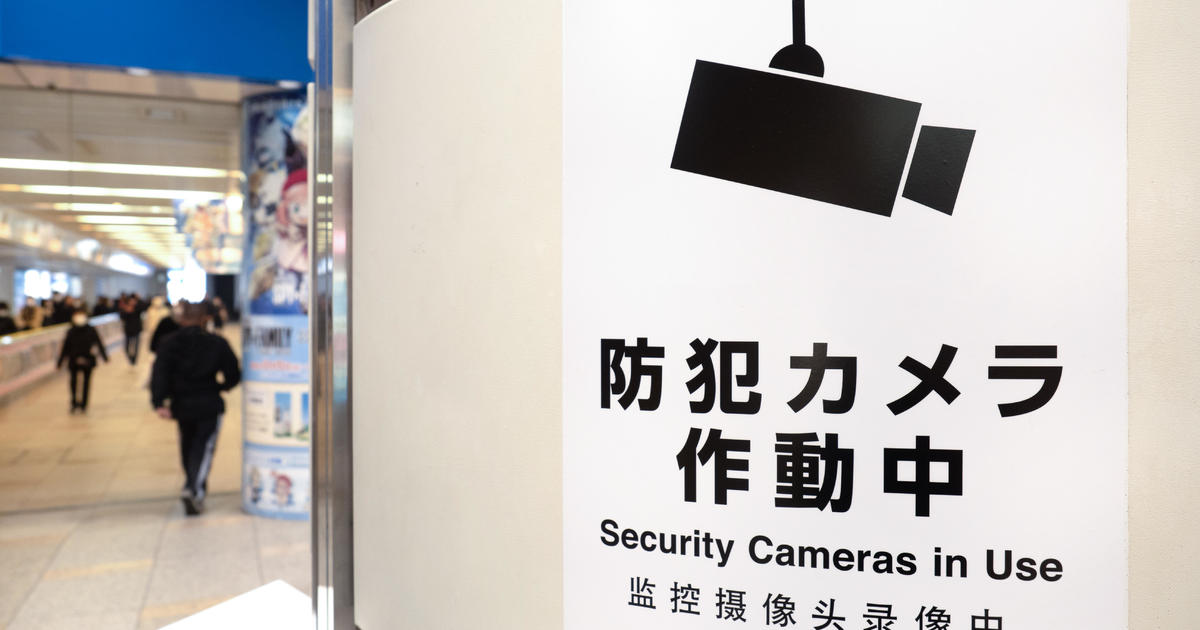CBS News
A man fired by a bank for taking a free detergent sample from a nearby store wins his battle in court

Tokyo — The Tokyo District Court typically garners headlines for high-profile cases, parsing issues such as whether married couples should be allowed to use separate surnames, privacy battles over the “right to be forgotten,” and gender discrimination in academia. But a bizarre lawsuit this month led the court into more prosaic territory.
It could be dubbed the case of the Freebie-Lover vs. the Angry Store Owner.
As chronicled in Japan’s Asahi Shimbun newspaper, the saga began just before opening hours at a shopping mall in Nagano Prefecture. On his way to work, an unidentified bank branch assistant manager happened to spot a nearby store offering modest giveaways — free packets of laundry detergent displayed in front of the store to lure customers.
Noting the “Help yourself” sign, he did so, and then went on his way.
But it did not sit well with the store’s staff. After checking to make sure the security cameras had captured the suds-lifter red-handed, an employee quickly informed the bank that, as the soap-grab had taken place before business hours, it amounted to theft.
The bank executive, the man’s boss, and even the bank’s area manager offered multiple, profuse apologies. All bank employees were ordered to alter their commute routes to avoid walking in front of the cellphone store — no small feat, as the store is located on the corner just opposite the bank branch.
But the store’s management was not to be placated, despite the fact that the promotional giveaways had been provided free by the manufacturer and were likely worth less than $2 each. The store demanded that the bank employee be transferred to another branch.
Worried about possible fallout, the bank ended up firing the man, who then sued his former employer on grounds of unfair dismissal.
Since the detergent was outside for the taking, he argued, grabbing a packet could not possibly constitute larceny — and besides, as a potential customer, he was entitled to one.
For its part, the bank argued that given the gravity of his job handling customers’ assets, the man’s decision to pocket the soap — while perhaps not filthy lucre — fell outside the bounds of acceptable behavior. It was also noted that the man in question had a history of scooping up freebies from the shop.
In its March 8 verdict, the Tokyo District Court ruled that while such an act could be construed as theft, and in specific instances could justify dismissal, such a harsh penalty was unwarranted in this case. The fact that the man was technically still off-duty when the malfeasance occurred, the court said, obviated the need for any harsh penalty by the bank.
Noting the trivial value of the pilfered item, and the man’s repeated displays of remorse, it ordered the bank to give the man backpay, and his job back.
“The time and money invested in this case by all parties,” an Asahi columnist wrote in a postscript, “could have bought thousands of packets of detergent.”
CBS News
Here’s how much more it will cost to heat your home this winter

Americans are expected to spend more money heating their homes this winter than on holiday gifts, according to new research.
The elevated cost of staying warm indoors amid cold outdoor temperatures comes after an unusually hot summer, that led to households spending bigger shares of their budgets on cooling costs, compared with previous years, according to a report from the National Energy Assistance Directors Association (NEADA).
On average, spending on home heating this winter is projected to increase by 8.7% to $941, up from $866 last winter. The increased costs are attributed in part to both expected colder temperatures in the Northeast and Midwest states.
The new average expenditure on heating costs outpaces the $902 the average household is expected to spend on Christmas presents this year, according to a forecast from the National Retail Federation.
What’s driving up home heating costs?
There are different ways to keep residences warm. Families that use electricity to heat their homes are expected to face the largest increase in costs — more than 14% — which will bring the total up to $1,189 from $1,040 from mid-November through mid-March, which NEADA considers to be the winter period.
Driving up prices is the rising cost of updating and maintaining the electric grid. Plus, colder weather is expected to lead to increased consumption.
“It’s colder, and the cost of electricity is up as the grid is rebuilt. So we’re seeing both higher prices and greater usage,” NEADA Executive Director Mark Wolfe told CBS MoneyWatch.
Natural gas, propane and heating oil cost differences
Natural gas and propane users are also expected to be hit with bigger bills this winter. Heating costs for natural gas are up just over 3%, for an average cost of $634 for the winter period, compared with $615 for 2023-2024. Costs are expected to rise only modestly in line with wholesale prices.
Propane costs are up 4.4%, with families expected to spend an average of $1,231 heating homes, up from $1,179 last season.
Heating oil costs, by contrast, have declined 2.7%, which means average spending this winter will be $1,518, down from $1,560 last winter.
Early start to the season
November was colder than usual, with temperatures dropping prematurely after a “very expensive summer” of heat waves straining cooling resources, said Wolfe.
Blame climate change for the big swings in temperature, he added.
“Weather conditions can be very unpredictable even though over time, winters are getting warmer and summers are getting hotter. It’s not a straight line, and for consumers, it’s quite upsetting because higher utility bills are coming right before Christmas,” Wolfe said.
Steps to take now
There are steps consumers can take to help keep a lid on home heating costs.
Wolfe urges people to have their thermostats serviced now, before the coldest temperatures of the season roll in. That way, families won’t be on the hook for an emergency repair if their thermostat breaks in the middle of a cold front. A tune-up will also help heating systems run more efficiently, he said.
Always close the furnace flue, or else it will lead heat outside the house, advises Wolfe. Lastly, manually turn down the heat at night, if you can, to save up to 10% on your energy bill.
CBS News
The Pager Plot | Sunday on 60 Minutes

Watch CBS News
Be the first to know
Get browser notifications for breaking news, live events, and exclusive reporting.
CBS News
Mega Millions jackpot soars to $862 million for Friday night’s drawing

There’s still time to become a mega-millionaire for Christmas, but lady luck will have to be on your side.
No one matched Mega Millions‘ all six winning numbers last Tuesday, and the jackpot now stands at $862 million ahead of Friday night’s drawing.
The jackpot has been rolling since it was last won at $810 million in Texas on Sept. 10.
If there is a sole winner, they have a choice between an annuity, with an initial payment and then 29 annual payments, or a one-time lump sum payment. Most winners choose a cash payout.
For Friday night’s drawing, that would be an estimated $392.1 million before taxes.
If won at that level, it would be the largest prize ever won in December and the seventh largest in Mega Millions history.
According to Mega Millions, 13 jackpots have been won during December since the game began in 2002. Three were won in the days after Christmas, while the other 10 were won before Christmas. There has never been a jackpot win on Christmas Day, although over the years drawings have been conducted on Christmas six times – in 2007, 2009, 2012, 2015, 2018 and 2020.
Mega Millions drawings are held on Tuesday and Friday, tickets cost $2. The odds of winning the jackpot are about 1 in 303 million.








